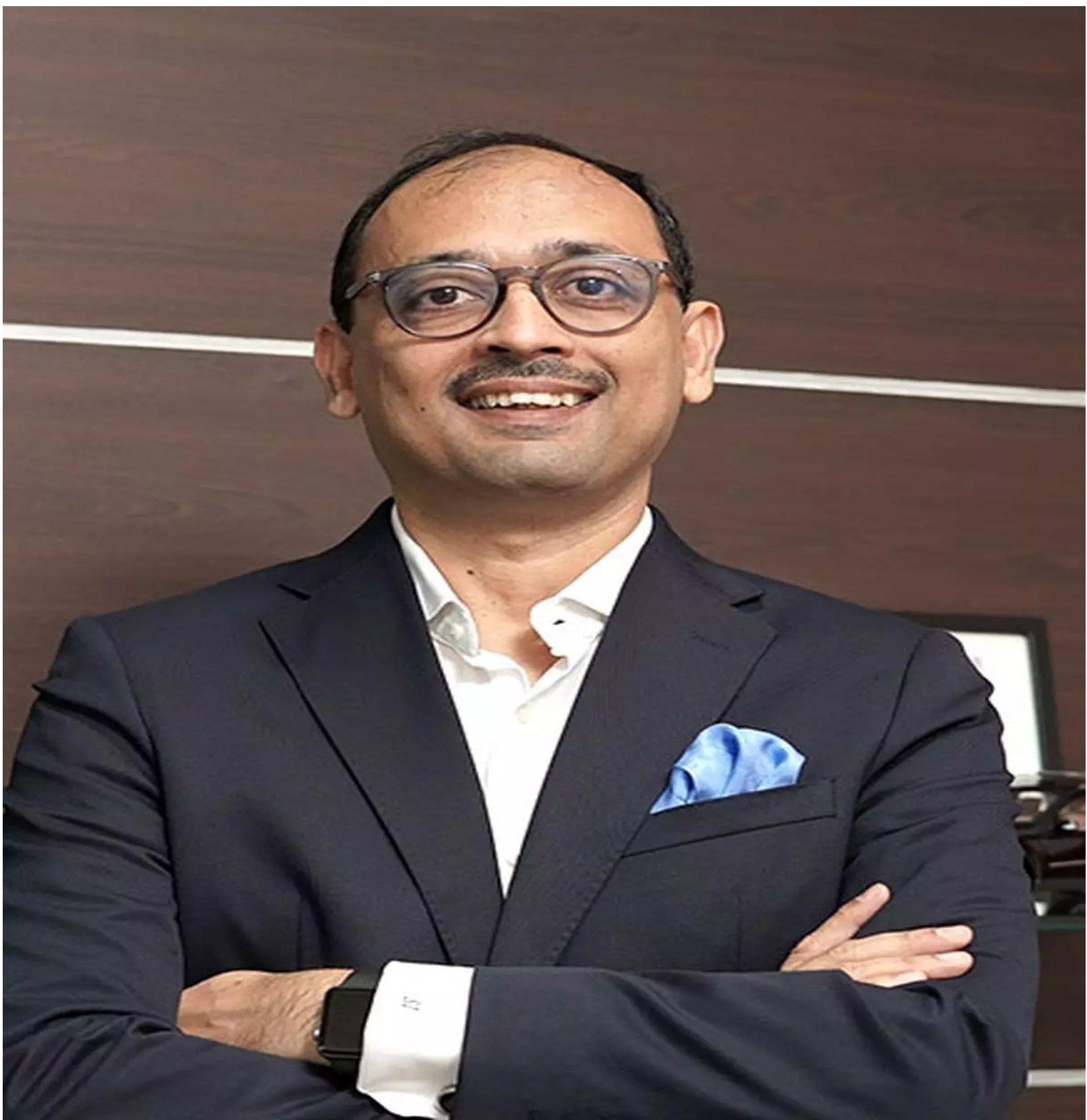Biofuel in petrol stations up to 20 per cent is still a far way: Mercedes-Benz’s MD

The luxury car market in India is seeing the best year in the current financial year. Companies are noticing more young professionals thronging the showrooms to grab their latest machines, which is becoming like a lifestyle statement. In an interview with businessline, Santosh Iyer, Managing Director and CEO, Mercedes-Benz India, shares the current trends and latest market buzz around luxury cars in India. Edited excerpts:
Since the festive season has already kicked off in India with Onam in Kerala, how is the luxury car market performing in the current scenario?
I think the good part of this year’s festive season is its spread over four months starting with Onam in Kerala in August and then Ganesh Chaturthi in September, Dussehra in October, and then, of course, Diwali in November. This gives us a lot of flexibility for production because it is not a peaking up but more spread out.
When it comes to demand, we already started seeing demand for deliveries in July-August where the customers were booking the cars and wanting a commitment to deliver it during the festive period. So, if I look at that and if we are able to now deliver these cars, we should have a very good festive growth compared to even last year. If you remember last year was the best-ever year, even the best-ever festive sales and this year should set new records with double-digit growth over last year.
So, let’s see, maybe we will also release our quarterly numbers in the first week of October. But, overall, it looks quite positive.
Any numbers that you can share as compared with last year?
As I said the festive period has just started, so Kerala is just one State, so I wouldn’t like to make a comment like that but, I would say overall growth will be to the tune of double digits compared with last year and that should help us do again a best-ever festive period.
In the luxury EV segment, because of the high-import/ customs duties, is there any impact on demand?
I think import duty has nothing to do with EVs because today, the pricing of the cars is quite aggressively done. So, if you look at our portfolio, the EQS is available which we are locally producing at ₹1.6 crore, the EQB at ₹80 lakh, even the latest launch — the EQE SUV, that is at ₹1.39 crore.
If I compare that with a combustion engine, let’s take EQE, the comparable model is the GLE 400 which will be at ₹1.08 crore ex-showroom, on road is ₹1.3 crore and today, you get an electric car with all the bells and whistles like hyper screen, airmatic (air suspension technology)…all many other features on the EV at just ₹1.39 crore. So, I think the pricing is there.
The market acceptance is slow, I would not say slow, I would say it is happening at a pace because of the overall myths around EV…there are still barriers on EV purchase like whether the car will last for 15 years, will I get a residual value, is a charging infrastructure in place and I think our responsibility is to address those concerns. So, the new EQE SUV that we have launched, we have already committed to 10-year battery warranty, 2.50 lakh km of battery…so now at least customers will know now in 15-20 years this can run and on the other side we are also giving a residual value guarantee equal to combustion engine. So, as original equipment manufacturers (OEMs) we need to mitigate some of these concerns.
Every customer whom I meet they say my next car is an EV which is possible because the future they say will be EV but when I ask them why not today, then the reasons are more myths than reality and today with cars having high range and very aggressively priced, I think it is a matter of time where the adoption starts increasing. Plus, to be fair the options are also very limited in the overall market. If you look at the mass market today, hardly few players, with 1.5 per cent odd penetration in the overall mass market, and even in luxury we are at four-five per cent as Mercedes Benz. So, I think it will take some time, but the mid-term outlook still remains positive. We still feel that 25 per cent of our sales should come from EVs in the next three-four years’ time.
Going forward, for the buyers and both for EVs and ICE-powered cars, what kind of trend do you see? Any specific profiles for the customer, what kind of professionals are these and what is specific to EV buyers?
I think more than professionals, the EV buyers are more trendsetters. They are very well aware about the battery, the technology, they want to flaunt the green number plate because they feel, they want to show that they are sustainable at the same point of time responsible and also take pride in being one of the first people adopting EV. So, it’s more of a mindset than the demographic or the sociographic and that includes youngsters, that includes middle-aged people also and old people also. So it’s not the age which is driving, it is the mindset which is driving the EV consumption.
The SUVs and Sedans, what kind of choices are there when it comes to demand? Is it still 50-50 or not?
No, we are seeing an increase. We are seeing an increasing trend towards SUVs no doubt because also one of our bigger launches which is the GLC was in the SUV segment. So definitely, we see a bigger traction at this stage on the SUV side. Having said that, even the sedans now have better availability because we have increased the production and there are also different options to buy sedans. But, to answer your question, SUVs definitely seem to have a much higher demand considering the GLC launch as well. The ration between SUV and sedan is now almost 60-40 for us.
What about the diesel demand? I mean there seems to be still a demand for diesel engines in the luxury car industry. Do you think that will continue?
Diesel in the luxury car, I can say for Mercedes-Benz is one of the cleanest diesels available in the market. They made Euro-6 and many of them are also cleared the stage-2 norms. Today I think diesels are very clean. They offer better technology; they also offer better fuel efficiency apart from better driving and torquiness.
So even today, diesel cars are more expensive by 10-15 per cent, but still customers buy diesel cars because of the benefits I mentioned and also a three-four year old diesel car fetches more than a gasoline car. So, the residual values are also very high for diesel. So surely customers prefer diesel. Now with the government’s push towards sustainable fuels, of course over a period of time, we may see the shift to electrification. But, we are ready, we have clean diesels, we have gasoline which can work with ethanol fuel, we have electric and we will adjust our production and supply based on market demand.
Government also recently announced plans for biofuel mix, is the luxury car makers interested in that because most of them are marching in pure EV form?
No, so today the biofuel mix is only 11 per cent and today our cars are already E10 and E20 ready. So, technically speaking, if the government is able to supply up to 20 per cent of blending also, our cars will be easily able to manage that. So, we are ready, but of course availability of biofuel in petrol stations up to 20 per cent is still a far way. So, I think we have many years to reach 20 per cent also.
On Tesla’s plans to manufacture in India becoming a reality soon, would there be any threat to EV makers in India?
Tesla coming is a very welcome step. It will definitely help in further creating awareness about EVs and also accelerating the shift towards EVs. But, if I go by the media reports which states they will participate in the mass market with the kind of pricing and products they have, so there I see a limited threat to the luxury segment and to Mercedes Benz as such because it’s a different price-volume segment that they intend to play. So, I am not sure what would be their eventual strategy. But, on the other side, we face Tesla worldwide, it’s not a new competitor for us and as I said any new competitor is always welcome in the market.
The overall market is going through a higher interest rate issue and many OEMs and industry bodies have been complaining about it. How far is luxury car market affected due to higher interest rates?
Higher interest rate and increased prices definitely dampens the sentiment. What we are trying to do is to compensate that with financial offers from our own NBFC which is Mercedes Benz Financial. So, right now, we have very good EMI schemes where the cost of ownership is taken care of, the EMIs are taken care of the customer with very good interest rates offered by Mercedes Benz Financial and because of that we are able to mitigate some of this anxiety. But, any increase in price or interest rates definitely affects the demand.

















